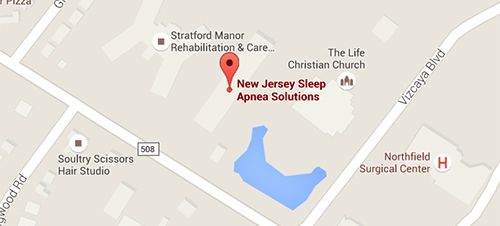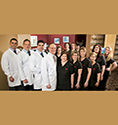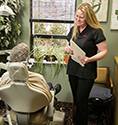Mouth Exercises to Help Minimize Snoring
Submitted by New Jersey Snoring Solutions on Tue 02/27/2018 - 09:00
 Snoring is a classic disruptor of sleep, both for you and your partner. Simple exercises for your tongue and cheeks may strengthen the muscles enough to reduce the frequency and power of your snore. Below, West Orange sleep apnea specialist Dr. Ivan Stein discusses the roots of snoring and some simple exercises that may help alleviate the problem.
Snoring is a classic disruptor of sleep, both for you and your partner. Simple exercises for your tongue and cheeks may strengthen the muscles enough to reduce the frequency and power of your snore. Below, West Orange sleep apnea specialist Dr. Ivan Stein discusses the roots of snoring and some simple exercises that may help alleviate the problem.
Why We Snore
Relaxed throat muscles are the primary reason we snore. As the muscles relax, the walls of the throat constrict, creating loud vibrations in the airway. This problem typically worsens with age, but keeping the throat and tongue muscles in good shape may help keep the airway open. In severe cases, the throat walls collapse, completely blocking the airway. When this happens, people momentarily stop breathing, which usually startles them awake. The combination of snoring and audible gasps or choking caused by pauses in the breath could indicate obstructive sleep apnea (OSA), a potentially serious sleep disorder.
Strengthening Exercises
A simple set of exercises may aid in keeping your airways open while you rest. Talk to your doctor to see if the following oral exercises are right for you:
- Suck your tongue so it is pressed against the roof of your mouth
- Press your tongue against the roof of your mouth and slide it back and forth
- Push the back of your tongue down against the floor of your mouth, keeping the tip against your bottom front teeth
Other Solutions
These exercises may be able to reduce the strength and frequency of your snoring, but they do not provide a cure for OSA. If you suffer from chronic sleep disturbances, your doctor may recommend a continuous positive airway pressure (CPAP) machine to help you breathe. With the device, a mask introduces a regular stream of oxygen to your lungs, keeping your airways open and allowing uninterrupted breathing. CPAP machines can greatly reduce the symptoms of OSA, lowering the risk for health complications such as hypertension, heart trouble and stroke.
More modern treatment options are also available, including oral appliance therapy. Oral appliances closely resemble the design of a mouth guard and are placed in the mouth to clear whatever is blocking the airway and preventing proper breathing. Oral appliance therapy offers the same benefits as CPAP but without the bulkiness and potential discomfort.
Mouth exercises may help reduce snoring, but symptoms of a sleep disorder should be discussed with a health professional. To schedule a consultation with Dr. Ivan Stein, call New Jersey Sleep Apnea Solutions at (855) 949-7667.







